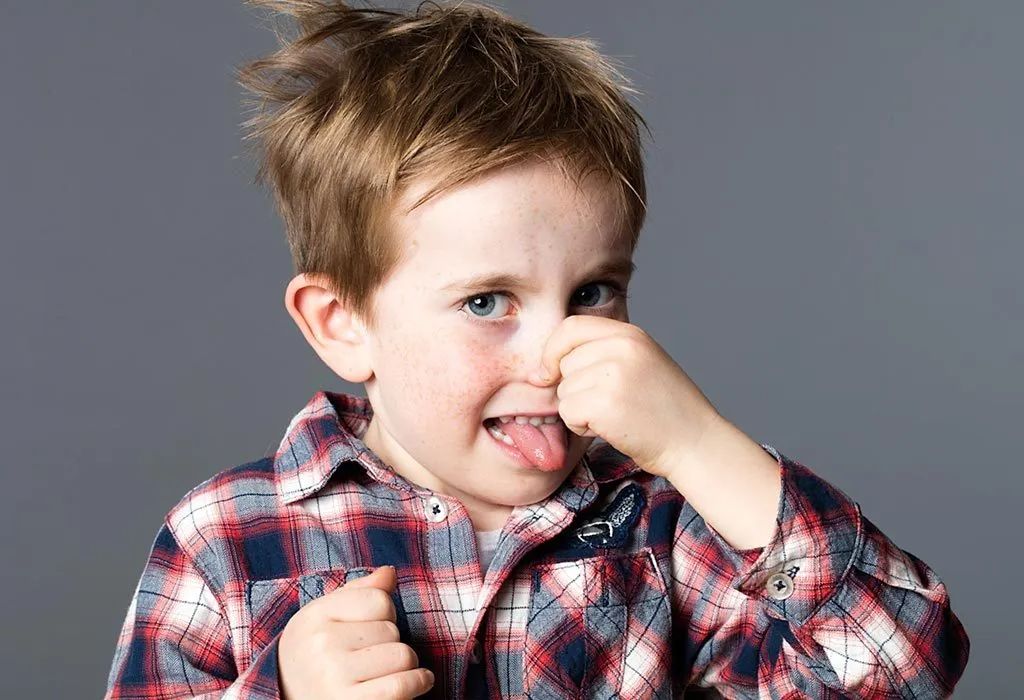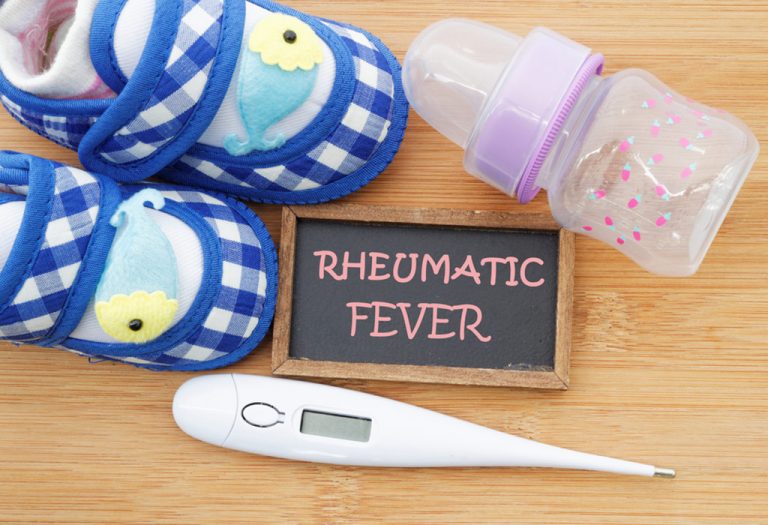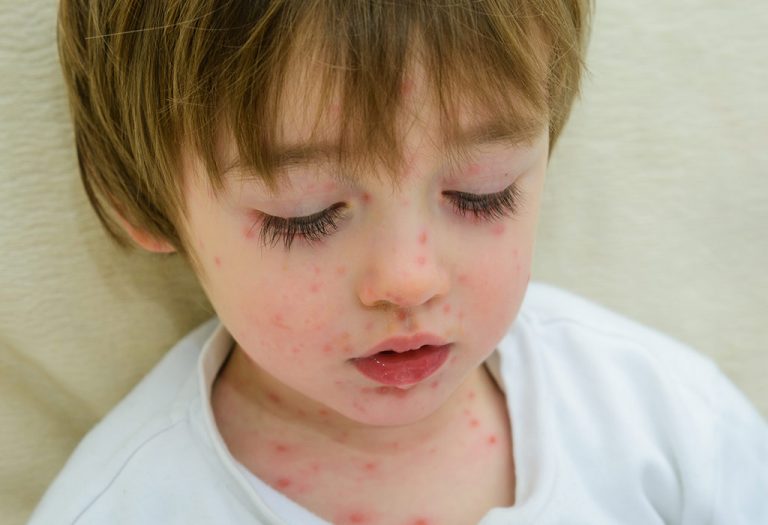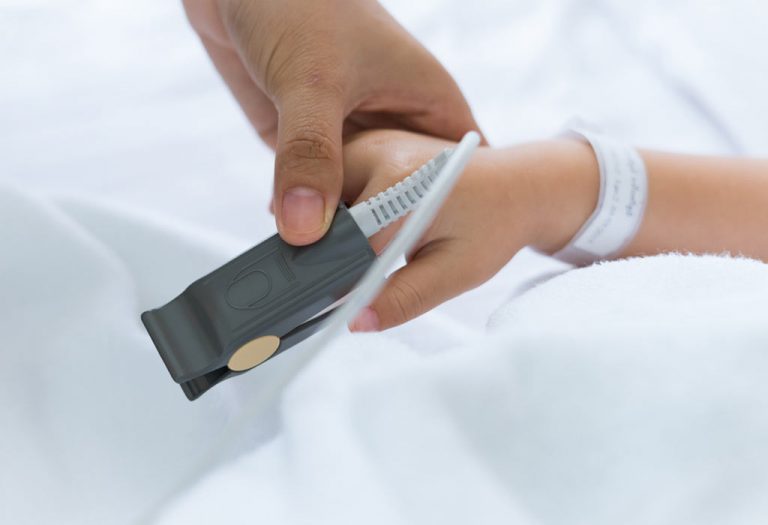Body Odour in Children – Reasons, Remedies and Prevention
As parents, you love every little thing about your baby, including the sweet fragrance associated with babies as you hold them close to you. But then this notion goes out of the window as they grow older and come in closer contact with the environment. As they are exposed to the outdoors, they become more active and like digging their face into everything they can get their hands, face, and body into! However, a massive difference exists between kids getting stinky due to environmental interaction and developing body odour. As a parent, if your child is developing an odour despite a good hygiene routine, it could be a cause for concern. This article examines the causes of body odour in children, its symptoms, and ways to combat it.
Is Body Odour in Children Normal?

Body odour is caused by bacteria acting on sweat produced by the sweat glands in our body. The eccrine sweat glands, present throughout the body, release sweat when you have a fever, eat spicy food, or are in a hot and humid condition. The apocrine glands are sensitive to adrenaline release and sweat when the body experiences physical activity, fear, anxiety, or stress. These glands’ sweat is generally oily and odourless but can create an odour when it interacts with bacteria.
Body odour emitted in children is hardly noticeable. Children aged under eight do not have an odour. However, prepubescent teens and teenagers may have a distinct odour. So, if your 12-year-old sends a whiff of foul odour, it is simply a sign of the onset of puberty. If your girl sweats and smells like an adult at around eight and your boy at around nine, there is no need to worry (1). But if your 3-8-year-old is getting smelly, it is a cause for alarm and must not go unnoticed.
Body Odour Symptoms in Children
Body odour is characterised by a pungent, strong smell emanating from a particular body part, such as the armpits, feet, and pubic area. The smell is a critical symptom of body odour. In addition, you will also notice the following,
- Excess sweating
- Sweating during sleep
- Cold hands
- Weight Loss
The endocrine system, a collection of hormone-producing glands, is affected by an infection or any other condition that causes the above symptoms. In some cases, severe symptoms like the ones below could also be noticed if severe medical conditions cause them.
- Chest Pain
- Hindered vision
- Breathlessness and confusion
Causes of Body Odour in Kids
Anything is easier to deal with if you are aware of the cause. Some common causes that cause body odour in kids:
1. Poor Hygiene
Lack of proper hygiene, irregular bathing, dirty armpits and groin areas are common causes of body odour. The bacteria accumulated in the clothes stick to the sweat and release the odour.
2. Food habits
Food your child eats directly correlates to body odour (2). What goes in comes out in a distasteful manner. The food consumed affects not only their breath but also their odour. After some food is digested, it seeps into the skin’s pores, creating an odour. Some typical food that causes odour in kids and adults are:
- Garlic and onions.
- Red meat has an amino acid called carnitine, which can cause odours.
- Milk and dairy products take longer to digest, so excess consumption releases methyl mercaptan and hydrogen sulphide, which causes a foul smell.
- Smelly food like fish, eggs, legumes and other spicy food.
- It is processed food and foods that lack fibre.
3. Puberty
Body odour is typical for children closer to puberty. Girls reach puberty between ages 8 and 14, and boys between ages 9 and 15. During this phase, their bodies undergo hormonal changes, leading to changes in physical appearance and behaviour. Their sweat glands work overtime, and it is normal for them to have body odour (3).
4. Premature Adrenarche
Early sexual maturation in kids caused by adrenal hormones is known as Adrenarche. It can cause the growth of pubic hair in children (girls younger than eight and boys younger than 9) along with adult-like body odour (4).
5. Fish Odour Syndrome (Trimethylaminuria)
Trimethylaminuria is a rare metabolic disorder in children caused by the abnormal production of the Flavin enzyme. It stops the chemical trimethylaminuria from breaking down to trimethylamine oxide, which accumulates and causes the urine, breath, and sweat to smell like fish (5).
6. Phenylketonuria
This is another rare metabolic disease marked by the absence or deficiency of the phenylalanine hydroxylase (PAH) enzyme. In addition to other symptoms, this deficiency can cause a musty body odour resulting from phenylacetic acid in the urine or sweat (10).
7. Underlying Medical Condition
A distinct body odour in your child signals an underlying medical condition like a kidney or liver-related ailment, diabetes or inflammation of organs. If your child is sweating profusely, then they may have hyperhidrosis. It is necessary to seek medical intervention in such instances (3).
Medical Treatment for Body Odour in a Child
Medical treatments for body odour depend on the cause of the condition. In addition to personal hygiene, doctors recommend the following to treat the body odours of children:
- In case of hyperhidrosis, topical anti-bacterial creams may be prescribed to reduce the pungent smell. Drying agents prevent excessive sweating and stop the growth of bacteria (6).
- Medications containing aluminium chloride hexahydrate may be recommended in case of excessive sweating in the armpits and the limbs.
- A change in diet could tackle body odour caused by trimethylaminuria. Avoid eggs, milk, fish, peanuts, soy products, and cabbage. Antibiotics may be prescribed to prevent the growth of bacteria. Laxatives may be recommended to reduce the amount of trimethylamine in your gut (7).
- Adrenarche cannot be treated with medication, but deodorants might be an effective remedy for the body odour it causes (4) (8).
Effective Home Remedies for Body Odour in Kids
Some home remedies to treat body odour:
1. Lemon juice in bath water
Lemon juice increases the body’s pH levels and keeps it dry, thereby preventing the growth of bacteria. Add a few drops to the bath water (2).
2. Apply lemon juice to sensitive areas
Dilute a spoonful of lemon juice with a cup of water and dab it on your child’s armpits with a cotton ball soaked in the concoction. Leave it for ten minutes, then rinse with water (2).
3. Treat bath water with tomato juice
Treat your kids’ bath water with two cups of tomato juice, let it soak for a few minutes, and then bathe them with this water.
4. Cleanse with apple cider vinegar
Dab a cotton ball soaked in apple cider vinegar on the body parts that sweat for a few minutes before a bath. Repeat this procedure twice daily before their bath for best results (2).
5. Make a deodorant with Rosemary
Rosemary contains menthol and chlorophyll, acting as natural deodorants to fight odour-causing bacteria. Boil a cup of rosemary leaves in a cup of water and add to the bath water. Soak your kid in the bathtub with this mixture for 15 minutes and pat dry. Alternatively, you could add rosemary oil to bath water (9).
6. Treat water with Sage
A fragrant herb, Sage controls the hyperactivity of sweat glands. Boil a cup of dried sage leaves and add to bath water. Mix sage, coriander, and lavender essential oil to make a deodorant and spray it daily (10).
7. Use Hazel
Witch Hazel has astringent properties to reduce odour. Soak a cotton ball and dab it onto the armpits.
Tips to Prevent Body Odour in Your Child
Here are a few valuable tips to prevent body odour (2):
- Maintain good personal hygiene, and talk to your children or teenagers about the importance of maintaining hygiene.
- Ensure your kid takes a bath every day, twice if possible and cleans their armpits, limbs and genitals well.
- Ensure your children wear clean clothes which are washed and dry. Dissuade them from repeating clothes.
- Ensure that kids wear clean and dry shoes, as wet shoes could result in infections.
- Ask your child to stay hydrated and drink lots of water
- Try replacing cow’s milk with organic, soy or almond milk
- Avoid foods that can cause body odour
- Increase the intake of fresh, green leafy vegetables and include aromatic herbs like basil, sage and rosemary in their diet. Chlorophyll in plants is a natural body cleanser.
FAQs
1. Does showering Daily eliminate a child’s body odour?
Showering daily or even twice a day will not always help eliminate body odour. This is because you cannot “wash away” body odour caused due to a medical condition.
2. Is it safe for children to use deodorant?
Deodorant could mask a child’s underarm odour caused by hygiene issues and puberty. But it may not help odour caused by medical conditions.
Body odour will surface as children grow up. However, if maintaining personal hygiene and home remedies to keep odour at bay are not working, it is time to seek medical intervention.
3. Is there any difference between boy and girl body odour?
Yes, boys and girls have different body odours due to the various hormones and chemicals secreted by their bodies. Women tend to secrete a more tropical fruit/onion-like odour compared to boys’ cheesy/rancid odour (11).
4. Are there any long-term effects of body odour in children?
Body odour is manageable and can be treated in most cases, leading to no long-term effects. However, if medical conditions cause body odours, it is best to consult your doctor immediately to get advice on the best course of action.
We hope this article has helped you answer burning questions like, “When do kids get body odour?”, “What to expect,” and “How to treat it.” Let us know if these remedies for body odour in kids have proven useful!
References/Resources:
1. Using Deodorants for Kids and Teens; Nemours KidsHealth; https://kidshealth.org/en/parents/deodorant.html
2. Body Odor; Cleveland Clinic; https://my.clevelandclinic.org/health/symptoms/17865-body-odor
3. UK HealthCast: Body Odor in Children; U.K. Healthcare; https://ukhealthcare.uky.edu/wellness-community/blog/uk-healthcast-body-odor-children
4. Premature Adrenarche: Information for Parents; Healthy Children; https://www.healthychildren.org/English/ages-stages/gradeschool/puberty/Pages/Premature-Adrenarche-Information-for-Parents.aspx
5. Messenger, J., Clark, S., Massick, S., and Bechtel, M.; A review of trimethylaminuria: (fish odour syndrome); J Clin Aesthet Dermatol; https://www.ncbi.nlm.nih.gov/pmc/articles/PMC3848652/; November 2013
6. Hyperhidrosis; Children’s Hospital of Philadelphia; https://www.chop.edu/conditions-diseases/hyperhidrosis
7. Sweat and Body Odor; Mayo Clinic; https://www.mayoclinic.org/diseases-conditions/sweating-and-body-odor/diagnosis-treatment/drc-20353898
8. Phenylketonuria; Rare Diseases Org; https://rarediseases.org/rare-diseases/phenylketonuria/
9. Andrade, J.M., Faustino, C., Garcia, C., Ladeiras, D., Reis, C.P., and Rijo, P.; Rosmarinus officinalis L.: an update review of its phytochemistry and biological activity; Future Sci OA; https://www.ncbi.nlm.nih.gov/pmc/articles/PMC5905578/; February 2018
10. Shahtalebi, M.A., Ghanadian, M., Farzan, A., Shiri, N., Shokri, D., and Fatemi, S.A.; Deodorant effects of a sage extract stick: Antibacterial activity and sensory evaluation of axillary deodorancy; J Res Med Sci; https://www.ncbi.nlm.nih.gov/pmc/articles/PMC3897065/; October 2013
11. Troccaz, M., Borchard, G., Vuilleumier, C., et al.; Gender-Specific Differences between the Concentrations of Nonvolatile (R)/(S)-3-Methyl-3-Sulfanylhexan-1-Ol and (R)/(S)-3-Hydroxy-3-Methyl-Hexanoic Acid Odor Precursors in Axillary Secretions; Chemical Senses; https://academic.oup.com/chemse/article/34/3/203/326432?login=false; March 2009
Also Read:
Bad Breath in Kids
Personal Hygiene in Children
How to Deal With Dandruff in Kids?
















